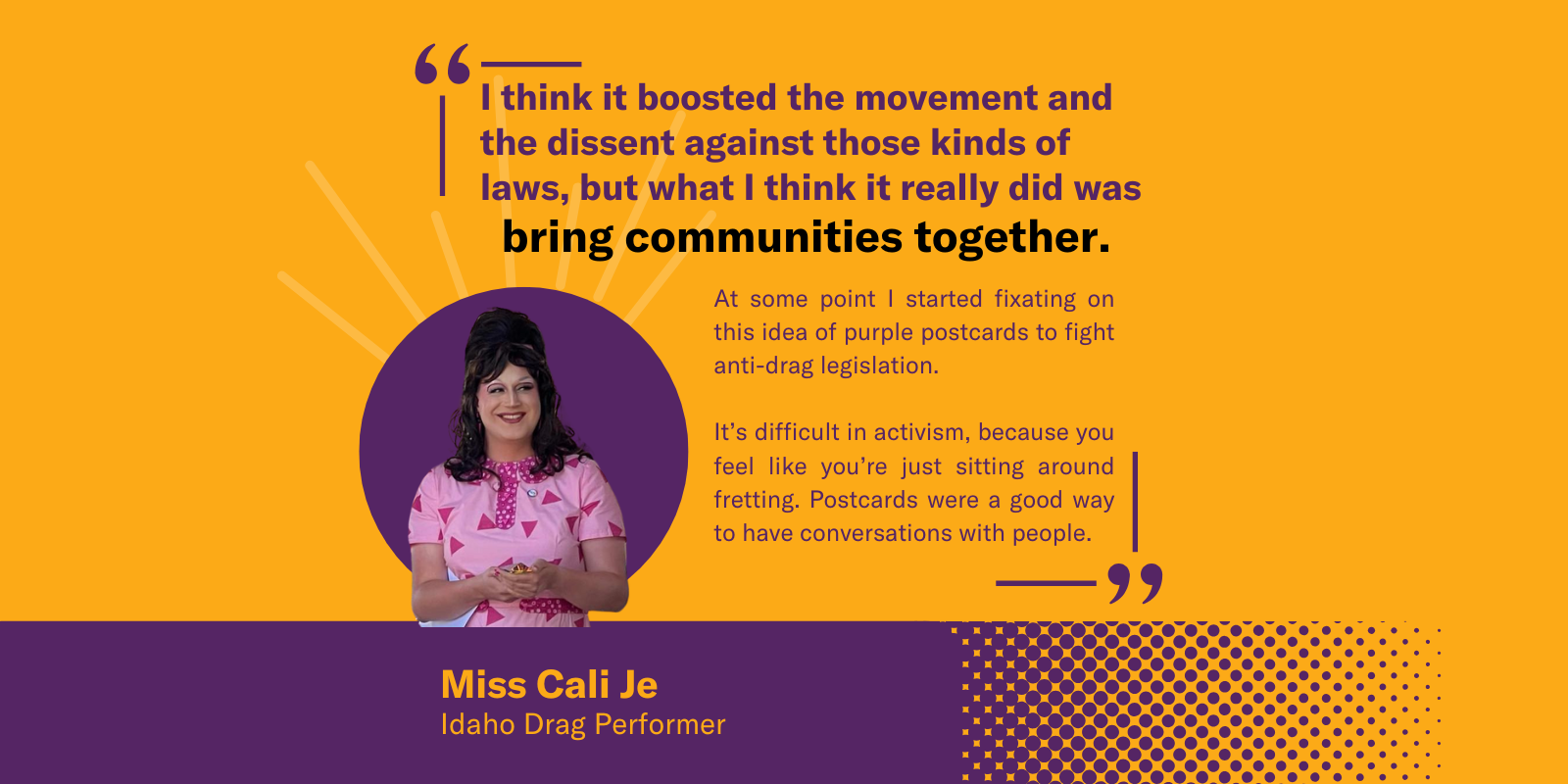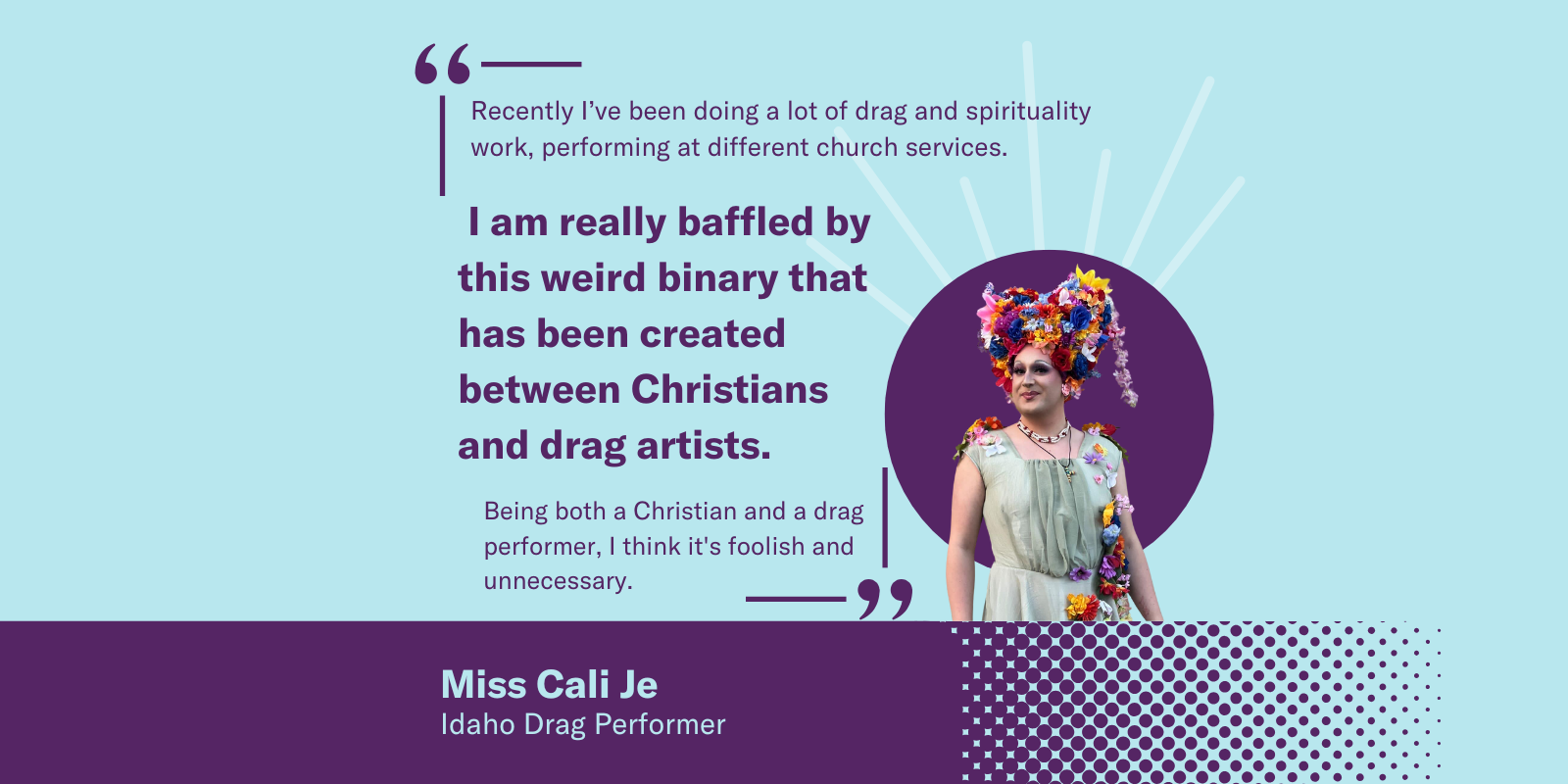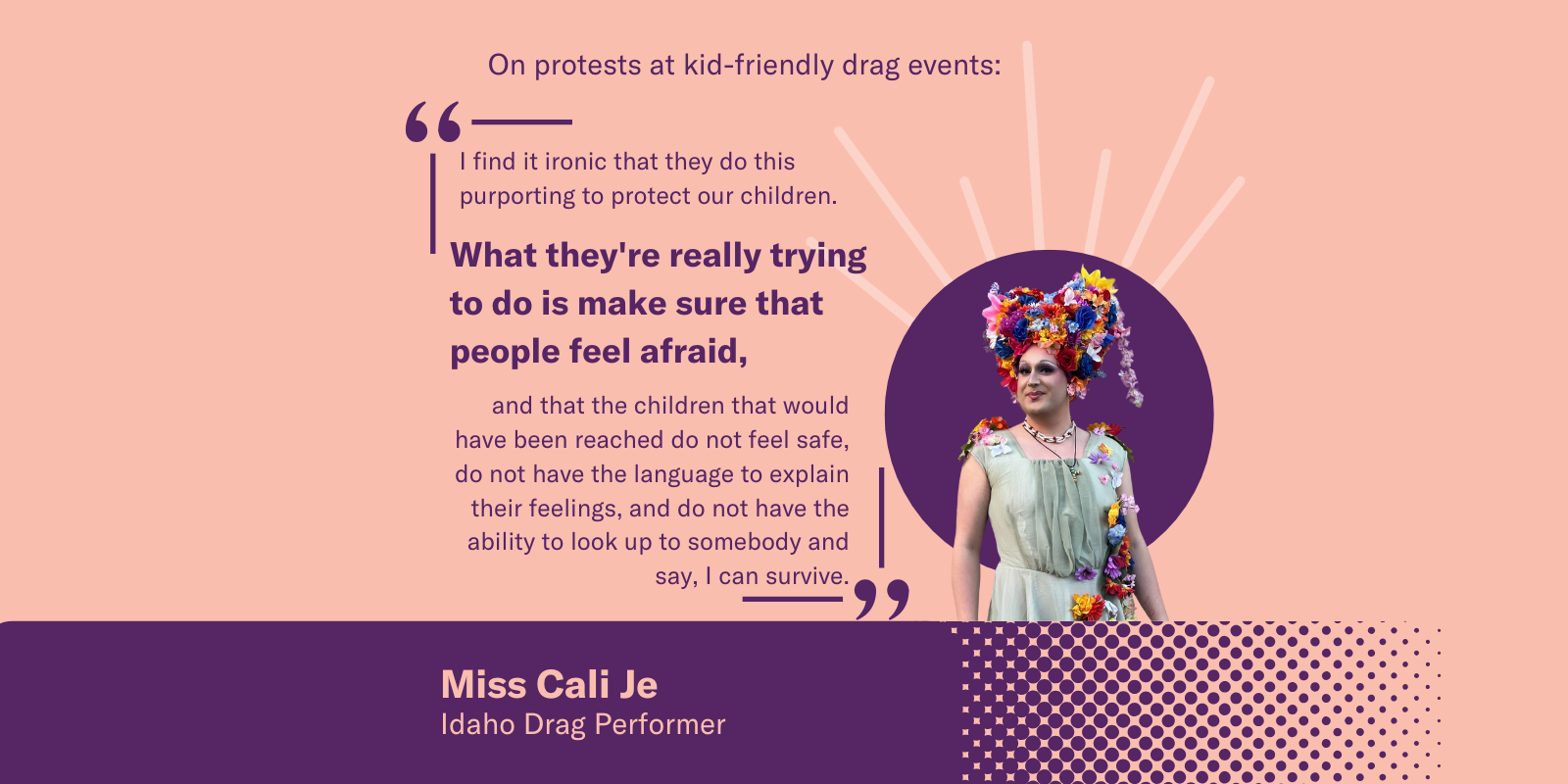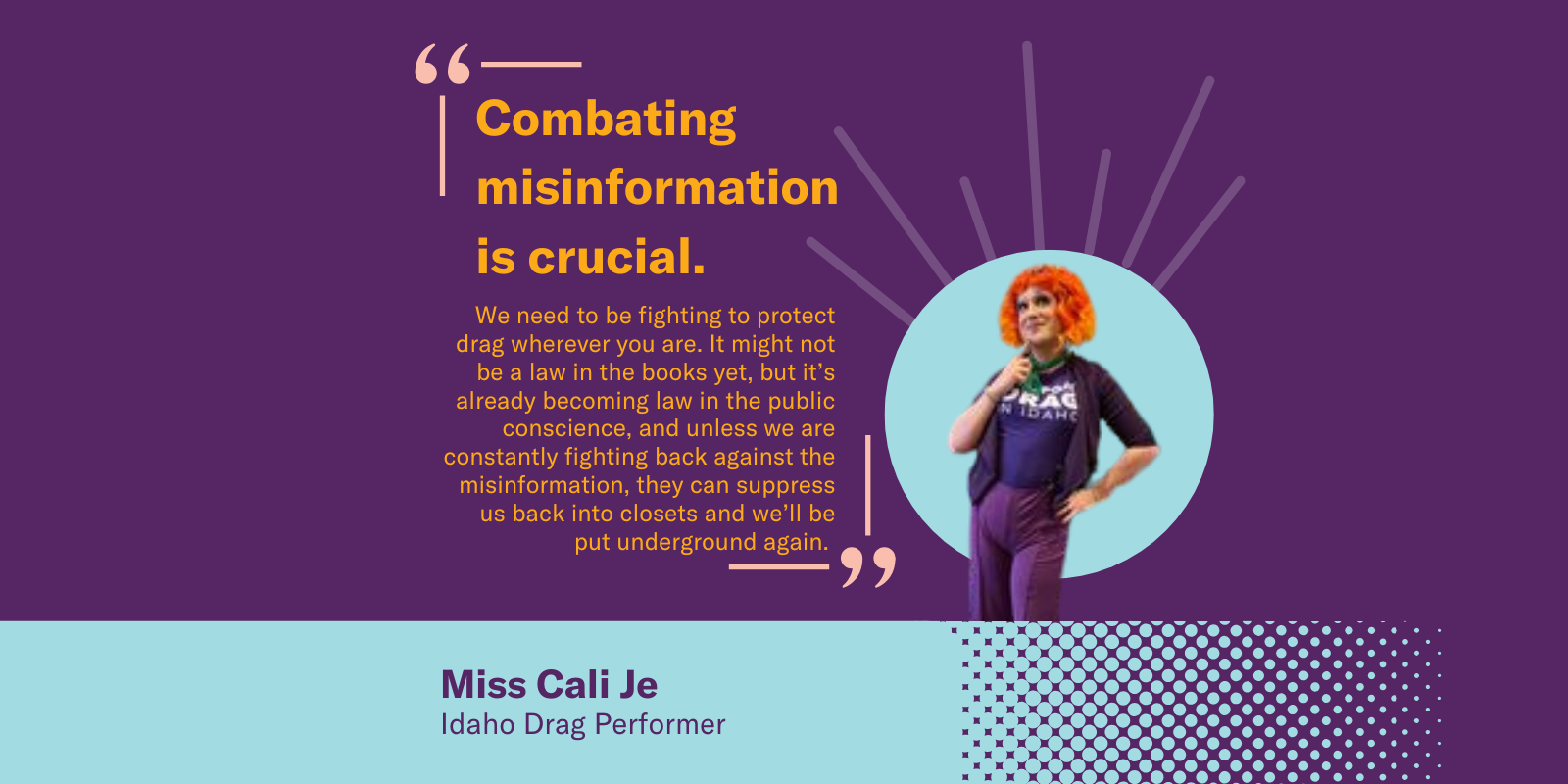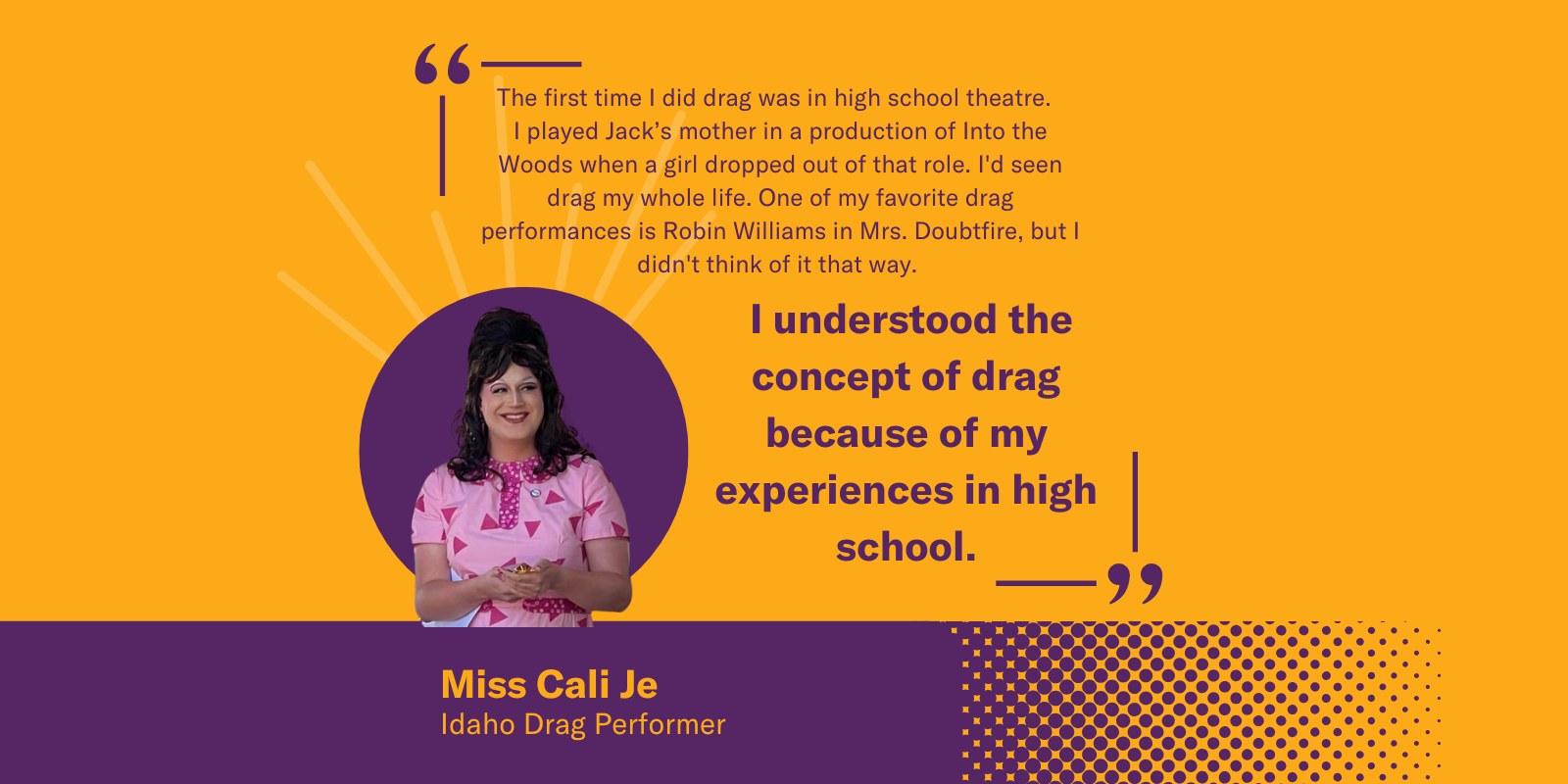Miss Cali Je
We center the stories of drag performers across Idaho to celebrate queer joy and advocate for the protection of drag performances as legal art form and first amendment right in Idaho. The stories shared on this page are here to celebrate and advocate to protect the constitutionally guaranteed right to dance, fashion, music, and DRAG!
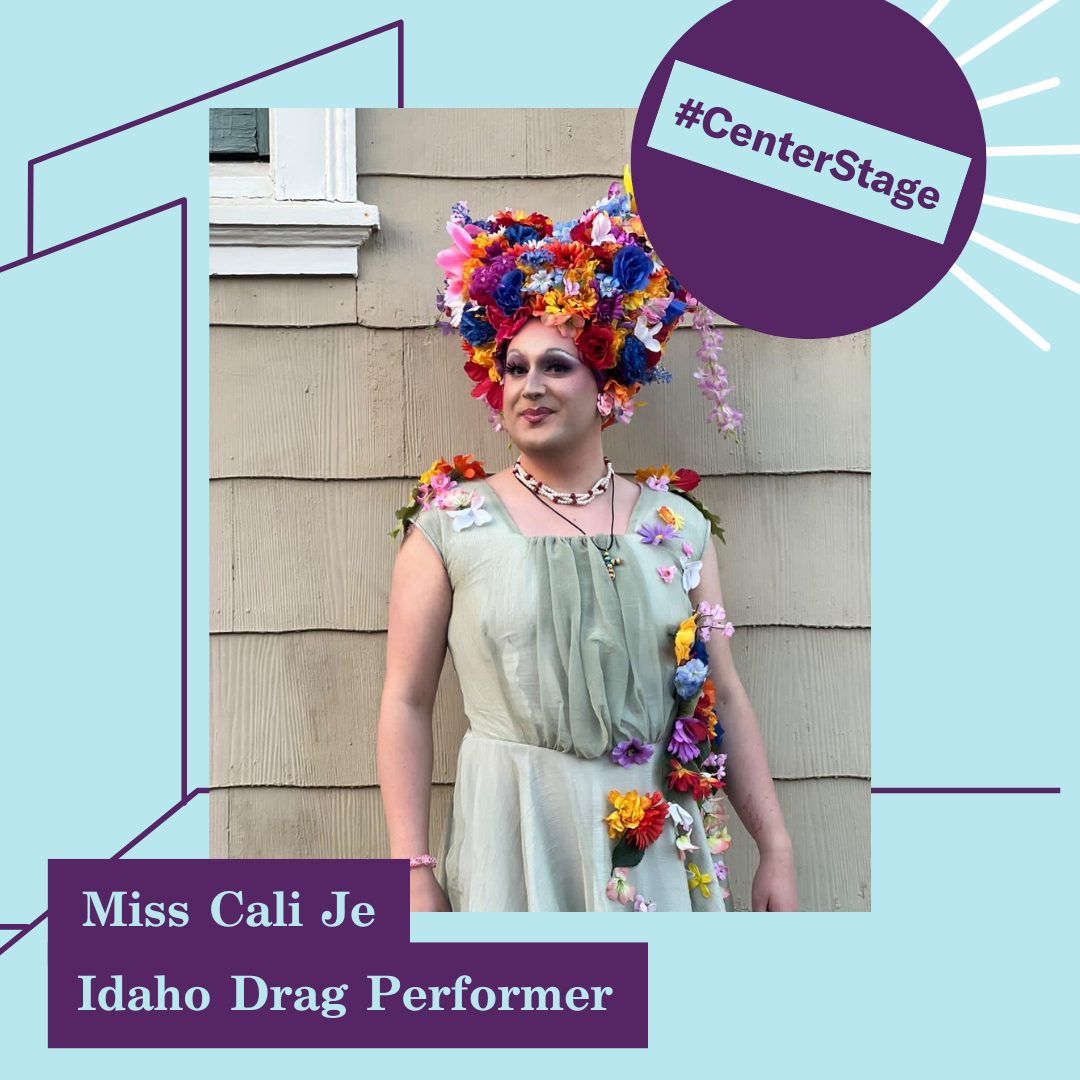
Cali Je is an Idaho-based drag performer, activist, advocate, and proud Episcopalian. She is the president of Reading Time with the Queens, a Pocatello non-profit who's mission is to have drag performers read stories that will teach us how to accept and love ourselves and others. We interviewed Cali Je and other drag performers from Idaho to get their perspective on why it's important that we protect drag in Idaho.
We center the stories of drag performers across Idaho to celebrate queer joy and advocate for the protection of drag performances as legal art form and first amendment right in Idaho. The stories shared on this page are here to celebrate and advocate to protect the constitutionally guaranteed right to dance, fashion, music, and DRAG!

Cali Je is an Idaho-based drag performer, activist, advocate, and proud Episcopalian. She is the president of Reading Time with the Queens, a Pocatello non-profit who's mission is to have drag performers read stories that will teach us how to accept and love ourselves and others. We interviewed Cali Je and other drag performers from Idaho to get their perspective on why it's important that we protect drag in Idaho.
Protect Drag in Idaho: Miss Cali Je
ABOUT THE CENTER STAGE STORY PROJECT
We center the stories of drag performers across Idaho to celebrate queer joy and advocate for the protection of drag performances as legal art form and first amendment right in Idaho. We believe in the value of visibility and the understanding of being seen is a crucial factor in preserving lives. Our intention is for performers to redefine the narrative of drag and expand the public perception of its true essence through their stories and lived experiences. Drag is a form of creative expression like any other and has always been about joy and acceptance. The stories shared on this page are here to celebrate and advocate to protect the constitutionally guaranteed right to dance, fashion, music, and DRAG!
LEARN HOW YOU CAN HELP PROTECT DRAG WITH THE NORTH IDAHO PRIDE ALLIANCE ⮕

